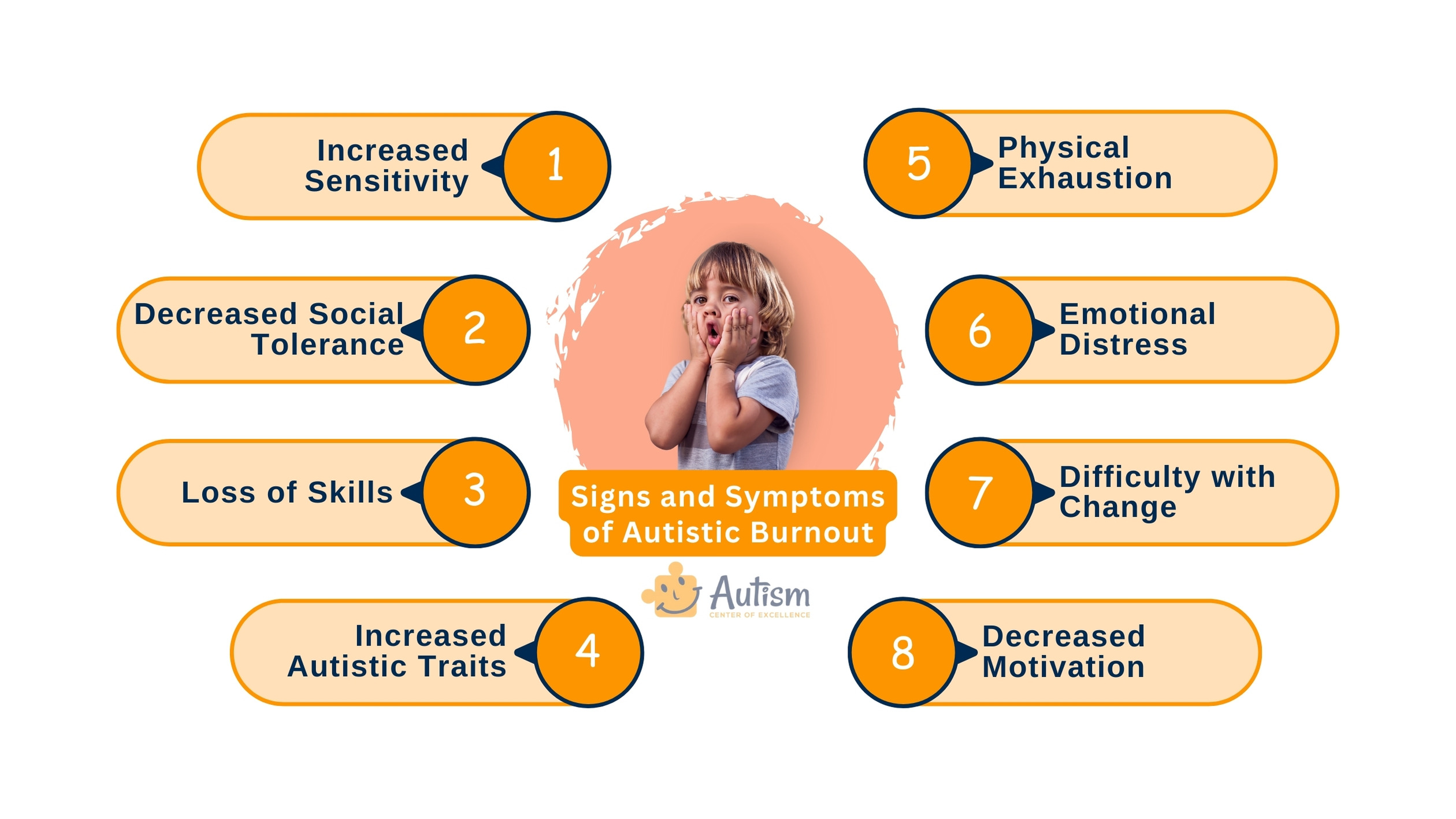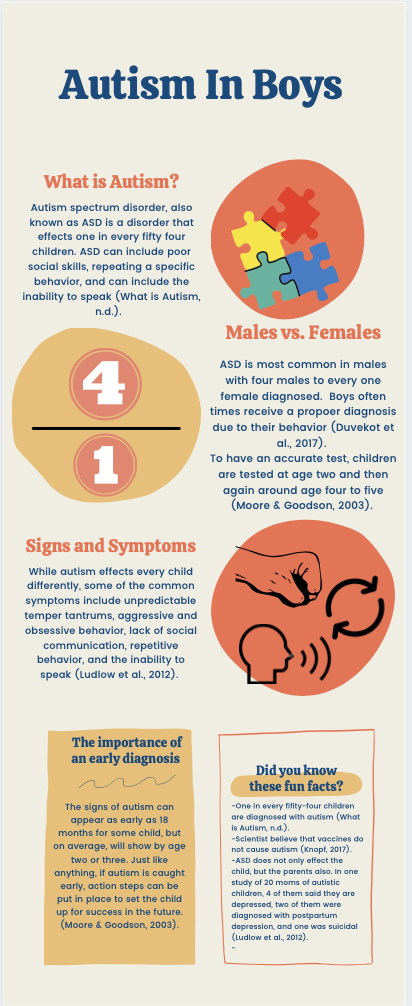Seven Powerful ways an expert in Autism Spectrum Therapies can help with social development challenges
Seven Powerful ways an expert in Autism Spectrum Therapies can help with social development challenges
Blog Article
Comprehending the Effect of Behavioral Autism on Daily Life and Social Interactions
You might not understand just how deeply behavioral autism influences everyday life and social communications. Individuals on the spectrum usually navigate a world loaded with communication difficulties and sensory overload. These obstacles can lead to stress and seclusion, influencing their partnerships and overall well-being.
Specifying Behavior Autism and Its Characteristics
Behavior autism, typically described as autism spectrum disorder (ASD), encompasses a series of problems characterized by difficulties in social communication, interaction, and recurring habits. You may notice that individuals with ASD typically battle to translate social cues, which can cause misconceptions in discussions. They might discover it tough to establish eye call or take part in small talk, making social circumstances feel overwhelming.
Interaction problems can materialize in various methods, from delayed speech development to a preference for using less words. Recurring behaviors, such as hand-flapping or shaking, can act as coping systems to take care of stress and anxiety or sensory overload. These features can exceptionally influence day-to-day life, making it crucial for you to recognize and sustain those with ASD. By acknowledging these characteristics, you can cultivate a setting that advertises approval and motivates effective communication, assisting individuals with autism thrive in their everyday interactions.
The Range of Autism: Comprehending Irregularity in Behavior
Autism spectrum condition (ASD) isn't a one-size-fits-all medical diagnosis; it varies extensively amongst individuals. You could notice that some individuals with ASD display light symptoms, while others may encounter extra considerable difficulties. This variability can show up in behaviors, rate of interests, and sensory level of sensitivities. You might run into individuals that are extremely spoken and involve conveniently in conversations, while others may like singular activities or connect non-verbally.
In addition, the way people with ASD reply to sensory input can vary substantially; some may be overwhelmed by bright lights or loud sounds, whereas others flourish in promoting atmospheres. The range also includes differences in social interactions; some people might battle to translate social cues, while others browse social setups with family member convenience. Comprehending this irregularity is crucial, as it aids you appreciate each individual's unique experience and dressmaker assistance to their particular demands, promoting a much more comprehensive environment for everyone.
Interaction Difficulties Faced by People With Autism
When you engage with people on the autism spectrum, you might discover their unique communication difficulties. They typically face difficulties with both nonverbal and verbal hints, which can influence their social interactions. Comprehending these barriers is vital for fostering far better connections and assistance.

Verbal Interaction Troubles
Several individuals on the autism spectrum experience verbal interaction problems that can substantially affect their daily communications. You might find it challenging to share your ideas, feelings, or requires plainly. This can lead to irritation for both you and those around you, as misconceptions occur. You may have problem with starting discussions, preserving a subject, or understanding nuances in speech. Typically, you could favor making use of straightforward language or repetitive phrases, which can restrict your capacity to take part in much deeper conversations. Your tone, speed, or quantity might not align with social expectations, triggering others to misinterpret your purposes. Identifying these challenges can help you and your assistance network develop strategies to enhance communication and promote far better connections with others in your life.
Nonverbal Interaction Barriers
Verbal interaction isn't the only difficulty people on the autism spectrum face; nonverbal communication barriers can be simply as considerable. You might find it tough to interpret body language, facial expressions, and eye get in touch with, which are crucial for reliable interaction. These challenges can result in misunderstandings or misinterpretations of social hints, making communications really feel complicated or overwhelming. You may battle to express your very own feelings with nonverbal methods, leaving others not sure of your purposes or sensations. This separate can produce sensations of isolation and aggravation. Identifying these obstacles is vital for promoting understanding and compassion in your communications. By attending to nonverbal communication, you can locate techniques to boost your social experiences and boost your total lifestyle.
Social Communication Effects
Social interactions can usually really feel overwhelming due to the special interaction difficulties dealt with by people with autism. Recognizing these obstacles can help you find techniques to improve interaction, such as exercising social abilities in secure setups or utilizing aesthetic help. Understanding your demands enables you to navigate social communications with better self-confidence and simplicity.
Social Communication and Connection Building in Autism
While building relationships can be challenging for individuals with autism, comprehending their unique point of views and interaction styles can foster significant links. You could see that many people on the range favor straight communication and might fight with social hints or tiny talk. By being uncomplicated in your interactions, you can aid develop an atmosphere where they feel comfortable.
Involving in shared interests can also serve as a bridge to deeper links. Whether it's a leisure activity, a preferred program, or a common interest, these common strings can open up doors to relationship.
Day-to-day Live Routine: Navigating Methods and obstacles
Steering daily life regimens can be especially challenging for people with autism, especially when unforeseen adjustments happen. To browse these difficulties, think about implementing aesthetic schedules or checklists.
Developing a routine that consists of sensory breaks can likewise be useful. You can intend short breaks throughout your day to reenergize. It's vital to communicate with those around you, letting them discover here know your preferences and demands. This assists produce an understanding atmosphere.
Last but not least, technique mindfulness techniques to manage stress and anxiety. Easy breathing workouts or grounding strategies can make a considerable difference. By integrating these methods, you can improve your everyday routine and decrease disturbances, making life feel a lot more convenient.
Staminas and Abilities of Individuals on the Autism Range
Comprehending life regimens is just one facet of the autism experience. Many people on the autism spectrum possess remarkable strengths and capabilities that set them apart. You might find that your focus to detail is remarkable, enabling you to stand out read this article in jobs that call for accuracy and emphasis. Your capability to think outside package can cause ingenious services in different scenarios.
Furthermore, your memory abilities frequently radiate, especially in locations of rate of interest. Aba Therapist Near Me. This propensity for maintaining info can make you a beneficial resource in fields like art, science, or modern technology. You may likewise display solid visual thinking, allowing you to imagine intricate ideas and fix problems artistically
Additionally, your distinct perspective on the globe can promote empathy and understanding in others, enriching social communications. Accepting these staminas not only boosts your self-confidence however also aids others value the varied skills you give the table.
Developing Inclusive Environments for People With Autism
Creating comprehensive environments for individuals with autism starts with making sensory-friendly spaces that satisfy their distinct demands. You can additionally cultivate opportunities for social communication, assisting to build relationships and connections. By making these adjustments, you'll add to a much more welcoming atmosphere for every person.
Creating Sensory-Friendly Spaces
While making sensory-friendly rooms, it's essential to mirror on the unique requirements of people with autism. Incorporate silent zones where individuals can charge and retreat when overwhelmed. Include aesthetic schedules or clear signage to help individuals browse the area with confidence.
Promoting Social Interaction Opportunities
Designing sensory-friendly spaces not just addresses specific comfort however also establishes the phase for significant social communications amongst people with autism. To promote these interactions, create comprehensive atmospheres that welcome engagement. Arrange organized activities, like art classes or team video games, that motivate cooperation without frustrating sensory input. Usage aesthetic help and clear communication to aid everyone involve easily. Encourage peer mentoring, matching individuals with autism with supportive peers that can lead them via social circumstances. Additionally, consider organizing routine neighborhood occasions that commemorate neurodiversity, promoting approval and understanding among all participants. By applying these strategies, you can improve social chances, aiding people with autism construct friendships and enhance their social skills in a risk-free, welcoming setting.

Frequently Asked Concerns
Exactly How Can Buddies Assistance Somebody With Behavioral Autism?
You can sustain a click site close friend with behavioral autism by holding your horses, listening actively, and respecting their limits. Participate in tasks they delight in, communicate honestly, and produce a comfy setting where they really feel valued and understood.
What Resources Are Available for Parents of Kid With Autism?
You can check out different sources for moms and dads of youngsters with autism, including assistance groups, educational internet sites, and regional social work. Linking with other parents can also offer beneficial understandings and shared experiences to assist browse difficulties.
Can Behavioral Autism Change Over Time?

Yes, behavioral autism can change in time. You may notice shifts in communication, social skills, and behavior as your kid grows. Early intervention and support often play crucial duties in these developing changes.
How Do Sensory Level Of Sensitivities Affect Life?
Sensory level of sensitivities can make everyday experiences frustrating. You might have problem with loud sounds or brilliant lights, bring about stress and anxiety or avoidance. Discovering atmospheres that fit your demands can significantly enhance your convenience and overall every day life.
What Are Common Misconceptions Concerning Behavioral Autism?
You might think behavioral autism just influences communication skills, yet it's even more complex. Many think individuals do not have compassion or knowledge, which isn't true. Comprehending these misunderstandings assists foster acceptance and support for those on the range.
Behavior autism, often referred to as autism range problem (ASD), incorporates a range of conditions identified by challenges in social communication, interaction, and repetitive habits.Social communications can typically really feel frustrating due to the special communication difficulties encountered by people with autism.Creating sensory-friendly rooms not only addresses specific convenience yet also sets the stage for meaningful social interactions among people with autism. Encourage peer mentoring, coupling people with autism with encouraging peers who can assist them via social circumstances. By carrying out these techniques, you can boost social chances, assisting individuals with autism construct relationships and reinforce their social abilities in a safe, welcoming atmosphere.
Report this page